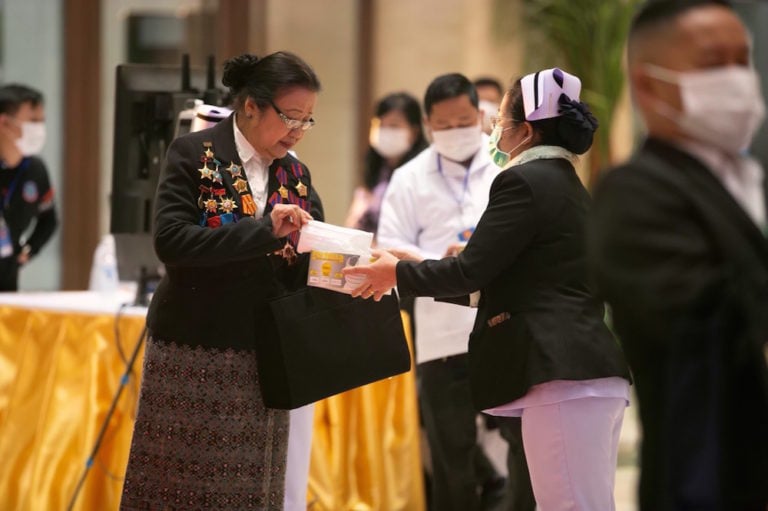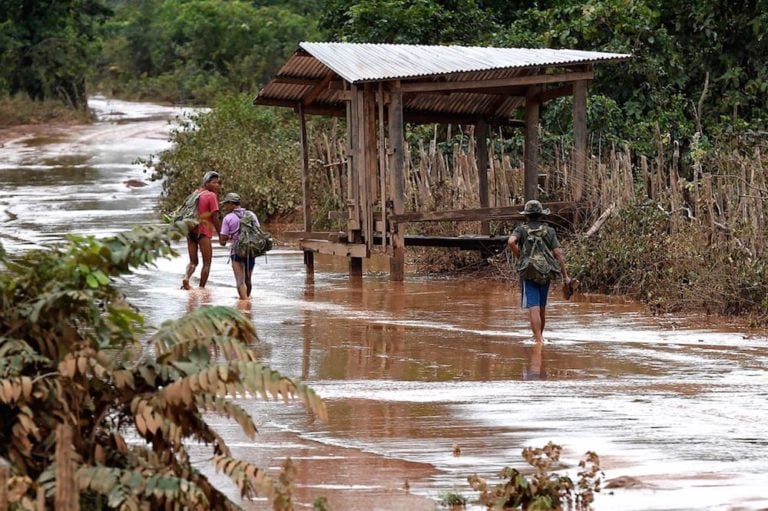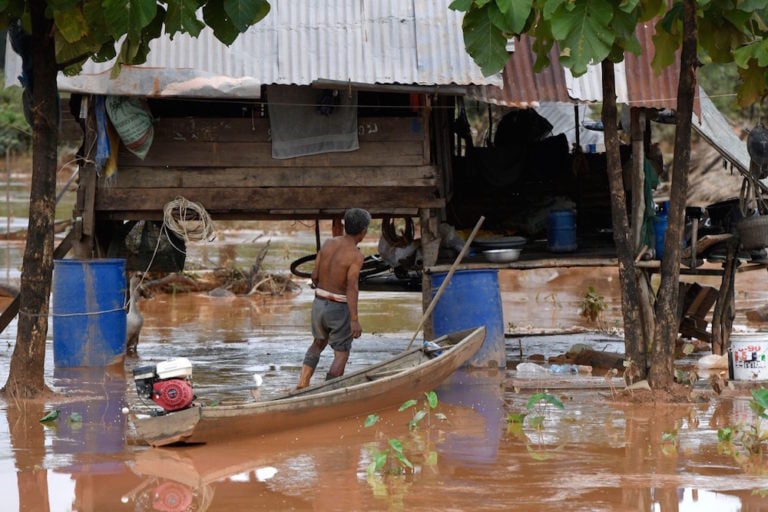(IPI/IFEX) – In an 8 June 2001 letter to Laos President Khamtay Siphandone, IPI expressed its concern over recent comments made by Information and Culture Minister Phandouangchit Vongsa that the Laos government intends to amend the penalty for freelance journalists who provide false information on Laos. According to information provided to IPI, on 8 June, […]
(IPI/IFEX) – In an 8 June 2001 letter to Laos President Khamtay Siphandone, IPI expressed its concern over recent comments made by Information and Culture Minister Phandouangchit Vongsa that the Laos government intends to amend the penalty for freelance journalists who provide false information on Laos.
According to information provided to IPI, on 8 June, Phandouangchit gave an interview to the Reuters news agency in which he said the Ministry of Information and Culture was amending the present Laotian laws to “promote the standards” of the Laos media. “We need to raise the professionalism of the Laotian media… their reporting must be responsive to the [ruling Lao People’s Revolutionary Party’s] long term target to bring the country out of poverty by 2020,” he said. The minister also stated that new guidelines would be drafted for the Lao media defining which “truths” should be reported for the benefit of the country.
Speaking on the role of freelance journalists and writers in Lao society, Phandouangchit said he would revise the penalties under the penal code for those who give false information about the country. He told Reuters, “there will certainly be penalties for those freelancers who have caused misunderstandings about Laos to the rest of the world.” At present, the Lao penal code forbids criticism of the state, distorting state or party politics and spreading false rumours – phrases which are often defined subjectively within the country’s judicial system. Journalists who fail to write “constructive reports” or “obstruct” the Lao People’s Revolutionary Party’s programme face jail sentences of between five and fifteen years.
IPI believes that the decision by the Lao government to tighten the already restrictive penal code is a heavy-handed attempt at preventing critical news reports on Laos appearing in the international media. As such, the decision is merely a continuation of the behaviour exhibited towards the media last year. On 30 March 2000, ABC’s Ginny Stein and David Leland were arrested by police while reporting on the aftermath of a bomb explosion that destroyed a restaurant in the capital. In September, the authorities reacted angrily to reports by the Associated Press that security forces were preventing the free movement of people at night. In a terse statement issued through their Embassy in Bangkok, the government said it was normal for searches to be carried out after 23:30 p.m. (local time).
IPI strongly believes that the government has no right to impose restrictive rules controlling what the media may or may not report upon. The drafting of guidelines and the reinforcement of already existing “false news provisions” runs contrary to the notion that, in a free and open democracy, the media have an express right to report on events deemed newsworthy. IPI reminded the president that the media does not exist for the benefit of the state nor to assist politicians; instead, it plays the essential role of seeking, receiving and imparting information. This freedom, enshrined under Article 19 of the United Nations Universal Declaration of Human Rights, also entails the freedom of choice.
Furthermore, governments need not go down the road of restricting the media by applying the law in a democracy. Governments have other opportunities to counter reports considered to be factually incorrect. Examples of this alternative method include news conferences, articles written by ministers, interviews and press releases. Indeed, the Lao government showed an appreciation of these methods when it issued the September press release from its Bangkok Embassy. Therefore, chastening though this may be to the Lao People’s Revolutionary Party, the role of any government is to encourage the free flow of information, not to stifle it by applying laws designed to avoid embarrassing or difficult questions.
Recommended Action
Send appeals to the president:
– asking him to reconsider his position on the amendments to the penal code and the drafting of new guidelines for the media
– urging him to remove all laws that penalise journalists practicing their profession in order to reinforce the importance of the role played by Article 31 of the Constitution which guarantees press freedom in Lao society
Appeals To
His Excellency Khamtay Siphandone
President
Lao People’s Democratic Republic
Office of the President
Samsantay Road
Vientiane, Laos
Fax: +856 21 22 36 38
Please copy appeals to the source if possible.


